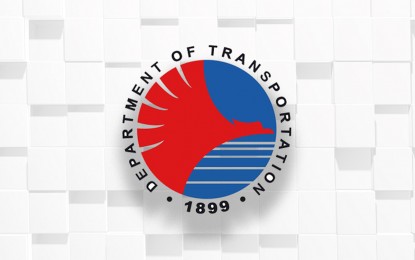MANILA – The Department of Transportation (DOTr) has issued a notice requiring Undersecretary for Special Concerns Ricky Alfonso to explain his actions, while the Land Transportation Office (LTO) filed a show cause order against his driver following a traffic altercation in Quezon City on October 8.
The driver of Alfonso’s sports utility vehicle, which was seen using blinkers and a “10” protocol plate, was ordered to appear before the LTO on October 17 to explain the incident.
His driver’s license has been suspended for 90 days and he has been dismissed from his position, the LTO chief confirmed.
The “10” protocol plate is reserved only for justices of the Court of Appeals, Sandiganbayan, Court of Tax Appeals, and the Solicitor General under LTO regulations.
While Alfonso is authorized to use the plate as a DOTr undersecretary, the agency found that his vehicle was not officially registered for such use.
A video of the altercation circulating online showed Alfonso’s driver allegedly slapping the driver of a utility vehicle during the confrontation.
The LTO chief reiterated that the LTO will enforce traffic and administrative laws “without fear or favor,” citing the President’s Administrative Order No. 18, which prohibits the use of sirens or blinkers by government officials except for law enforcement or emergency services.
The Acting DOTr Secretary said Alfonso has apologized to the other driver and terminated his aide, but the LTO maintained that apologies or private settlements do not exempt violators from accountability as investigations continue.
Department of Transportation
The United States Department of Transportation (USDOT) is a federal Cabinet department established by Congress in 1966 to ensure a fast, safe, efficient, and accessible transportation system. Its history began with the consolidation of various federal transportation agencies, and it now oversees numerous administrations, such as the Federal Aviation Administration (FAA) and Federal Highway Administration (FHWA). The department’s mission is to develop and coordinate policies to maintain and modernize the nation’s vast transportation infrastructure.
Land Transportation Office
The Land Transportation Office (LTO) is the primary government agency in the Philippines responsible for all land transportation-related matters. It was established to implement laws and regulations concerning vehicle registration, driver’s licensing, and road safety. The LTO’s history is tied to the development of the nation’s transportation system, evolving to manage the increasing number of vehicles and promote order on the roads.
Quezon City
Quezon City was founded in 1939 and served as the capital of the Philippines from 1948 to 1976, replacing Manila. It was named after Manuel L. Quezon, the second President of the Philippines, who envisioned a new capital city. Today, it is the most populous city in the country and a major center for government, education, and commerce.
Court of Appeals
The Court of Appeals is an intermediate appellate court found in many judicial systems, which reviews decisions made by lower trial courts. Its primary function is to determine if the law was applied correctly in the original proceeding, rather than re-examining facts or hearing new evidence. The modern appellate system, including courts of appeals, evolved to ensure legal consistency and to provide a crucial mechanism for correcting judicial errors.
Sandiganbayan
The Sandiganbayan is a special appellate court in the Philippines responsible for handling civil and criminal cases involving graft and corruption committed by public officials. It was established in 1979 under Presidential Decree No. 1606 as part of the government’s efforts to promote integrity and accountability in public service. The court serves as a pillar of the Philippine anti-corruption legal framework.
Court of Tax Appeals
The Court of Tax Appeals is a specialized court in the Philippines with jurisdiction over tax-related cases, disputes, and refunds. It was established in 1954 through Republic Act No. 1125 to provide a dedicated judicial body for resolving tax disputes between the government and taxpayers. Its creation aimed to ensure a fair and expert review of tax cases, separate from the country’s regular court system.
Solicitor General
The Solicitor General is not a physical place but a senior legal officer in some governments, most notably the United States. In the U.S., the Solicitor General is the fourth-ranking official in the Department of Justice and is responsible for representing the federal government before the Supreme Court. The position was established in 1870 and involves deciding when to appeal cases and arguing for the government’s position on critical legal matters.
President’s Administrative Order No. 18
This appears to be a misunderstanding, as “President’s Administrative Order No. 18” is not a physical place or cultural site. It is a type of legal or executive document issued by a head of state. Such an order is a directive used to manage government operations or implement policy, but it does not describe a location one can visit.






